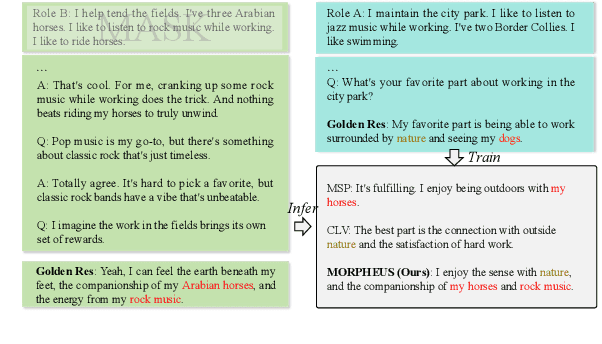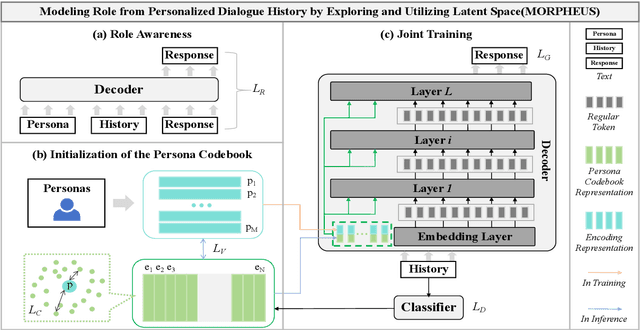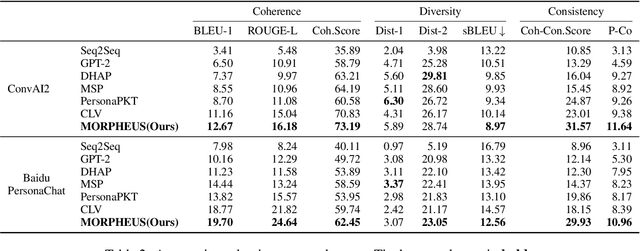Xiaojia Jin
MORPHEUS: Modeling Role from Personalized Dialogue History by Exploring and Utilizing Latent Space
Jul 02, 2024



Abstract:Personalized Dialogue Generation (PDG) aims to create coherent responses according to roles or personas. Traditional PDG relies on external role data, which can be scarce and raise privacy concerns. Approaches address these issues by extracting role information from dialogue history, which often fail to generically model roles in continuous space. To overcome these limitations, we introduce a novel framework \textbf{MO}dels \textbf{R}oles from \textbf{P}ersonalized Dialogue \textbf{H}istory by \textbf{E}xploring and \textbf{U}tilizing Latent \textbf{S}pace (MORPHEUS) through a three-stage training process. Specifically, we create a persona codebook to represent roles in latent space compactly, and this codebook is used to construct a posterior distribution of role information. This method enables the model to generalize across roles, allowing the generation of personalized dialogues even for unseen roles. Experiments on both Chinese and English datasets demonstrate that MORPHEUS enhances the extraction of role information, and improves response generation without external role data. Additionally, MORPHEUS can be considered an efficient fine-tuning for large language models.
 Add to Chrome
Add to Chrome Add to Firefox
Add to Firefox Add to Edge
Add to Edge